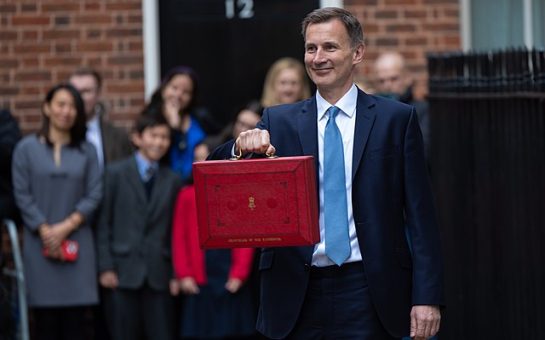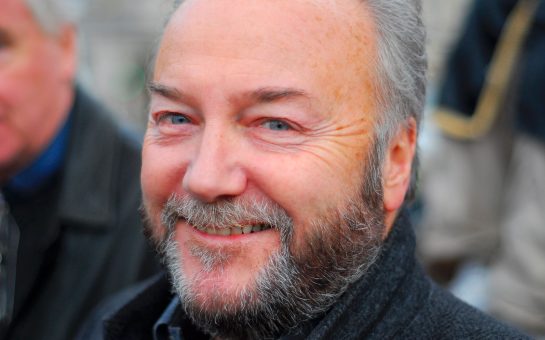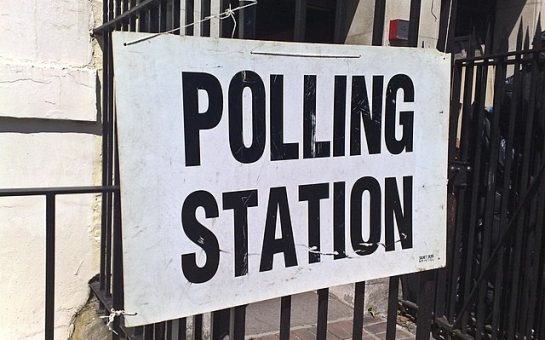On the eve of the 75th anniversary marking the end of World War II, the Guardian posted an editorial piece claiming that Britain ought to “get over the war.”
It added: “This is not a time for false pride.”
It’s become a cliché for opponents of the UK electorate’s decision to leave the European Union to mock the concept of British exceptionalism, with those who do wish to view their country through a different lens as being dubbed as ‘Little Englanders’.
Labour’s Emily Thornberry memorably slammed down our chances of success apart from the EU, warning: “We are such a small player, we might get swallowed up.”
In the 2019 book (aptly named Rule Britannia) by Danny Dorling and Sally Tomlinson, they made the correlaton between the way that unique Britain sees itself and delusion.
However, as the Financial Times’ Henry Mance points out, “so keen are the authors to discard the idea of British exceptionalism — ie that the UK is uniquely blessed — that they fall into the opposite fallacy — namely, that the UK is uniquely cursed.”
So it’s almost as if, in their desperation to for us to align ourselves in the homogeny of internationalism, they’ve forgotten what a special nation we are, and the magnitude of our achievements.
In the context of VE Day, we owe it to honour the extraordinary stoicism of the wartime generation, and here’s why…
Thornberry was half right, we are a small island. But what we didn’t have in landmass, we’ve certainly made up for in bravery.
Refusing to capitulate after losses of an estimated 338,000 men after Dunkirk, the Germans edged closer to the channel when the French became the latest to fold in June 1940.
“The British Empire now stood alone against the might of the German Military Machine,” Andrew Marr recounted.
But, what Hitler wasn’t counting on is the spirit now immortalised in Churchill’s evocative speech; “We shall never surrender.”
CHESS, TURING AND GAMBLING
But as the historian James Holland reveals, Britain’s airforce was very limited at the beginning of the war, yet managed to build up to a formidable 132,500 aircraft.
Masterminded by Head of Fighter Command, Sir Hugh Dowding, squadrons could be propelled up in the skies in 90 seconds flat. Decisions were made in the Plotting Room at RAF Uxbridge, where the pathway of German planes were plotted meticulously on a giant board, like a game of chess.
To help us second guess the Germans’ next move, we had a team working round the clock at Bletchley Park. Alan Turing wasn’t named The Greatest Icon of the 20th Century in last year’s BBC Poll for nothing. His prodigious mathematical abilities helped the Allies to intercept messages, take control of the skies and crucially, avoid German U-Boats at sea.
Britain ruled the waves, and as the Head of collections and research at the National Musuem of the Royal Navy Nick Hewitt demonstrates, British ships protected convoys of essential supplies and food, and helped the Americans to assimilate their military after entering the war in 1941.
All too often the perception that Britain would have been on its knees it hadn’t have been for the US joining us.
In spite of the dependency of the Lend-Lease loans, it’s often an overlooked fact that we still provided 31% of supplies to American troops in Europe.
But as Professor Dan Todman illustrates, Britain took a gamble. As the Allies gained the advantage from 1943, the UK redirected personnel from manufacturing into the armed forces in order to maximise the final assault.
D-Day, which consolidated allied victory in June 1944, all three leading chiefs were British, also providing 74% and 79% of the ships and landing craft respectably.
But it’s simplistic to try to explain Britain’s courage simply in a military sense. Back on the home front, valiant sacrifices ensured the Country kept calm and carried on.
Following an appeal broadcast on BBC Radio by Anthony Eden, a quarter of a million volunteers signed up in less than 24 hours to join the Home Guard. Although they’ve been satirised as being as about as useful as a chocolate teapot in the sitcom Dad’s Army (I’m not sure Captain Manwaring would see it that way!), the scale of willing shows you all you need to know.
Whole villages, such as Imber in Wiltshire were readily evacuated to make way for army training camps. But being prepared to evacuate your children for an unknown length of time was perhaps the most poignant sacrifice of all.
Out of the frying pan and into the fire, 1940 saw our greatest test; the blitz. In my nearest City, Coventry, residents were subjected to ‘Operation Moonlight Sonata’, where a third of the houses and the majority of its centre was gutted in one night in November 1940.
TOWER OF LONDON VEGGIE PATCHES
The ominous sight of the Luftwaffe stretching across the skies haunted most cities, but London’s residents endured the longest spell; a relentless 76-night bombing offensive.
I can’t imagine what that must have been like, although its residents remained steadfast and communitarian. In one lice-ridden shelter in Spitalfields, Mickey Davies (Or Mickey the midget as he was nicknamed!), set up a committee whereby people would all contribute a penny each for cleaning.
Cheering their spirits with wartime songs, those who could spare the ration provided milk for the children. When disaster had struck in Dunkirk, many of the volunteers who assisted the rescue with their pleasure boats wouldn’t have known the soldiers they were rescuing by name, but they did so out of a sense of duty and patriotism.
In a stark contrast to 2020, wartime Britain was pro-active. Responding to the ‘Dig for Britain’ campaign, Britain went from producing 14% to 91% of our own food.
Helping us to save naval convoys for military supplies rather than food, outdoor green space up and down the Country was converted into allotments, with the British Library even recording that the lawns of the Tower of London being turned into vegetable patches.
In a bid to boost morale, Churchill permitted church bells to ring out in thanksgiving to mark Montgomery’s victory in the second battle of El Alamein in November 1942.
We kept our spirits up through much loss, and by the time VE Day came, there was jubilation mixed with sorrow. Vera Schaufield, a Jewish evacuee who was transported to England from Czechoslovakia by the British humanitarian Nicholas Winton, recently retold of her reaction to allied victory whilst at school to the BBC’s History Magazine.
“I stood outside the classroom with all these mixed thoughts. I just wanted to go home.”
There were others like Schaufield who were badly bruised by the war, having lost family or friends, and facing an uncertainty as the country moved from full wartime employment to the reality of an economic deficit and a fallen empire.
As Andrew Marr ponders: “The British people came together in a way in which they’d never done so before, and sacrificed dreams and hopes and lives to keep hope alive around the world until the final victory came.”
Even though they knew much of the war damage was irreparable, the British people, whether it was 40,000 feet up in the air, at sea, in the codebreakers Hut 8 at Bletchley, the plotting rooms at RAF Uxbridge, but perhaps most importantly on every domestic street, endured right until the end to give all of us the freedom we have today.
If the French can adulate Bastille Day or the Americans adorn Independence Day, then we more than owe it to our wartime generation to honour their fortitude.
As a moved Churchill once said impromptu: “Never in the field of conflict was so much owed, by so many, to so few”.
We ought to remember that.
Image courtesy of Evening Standard via YouTube, with thanks.



